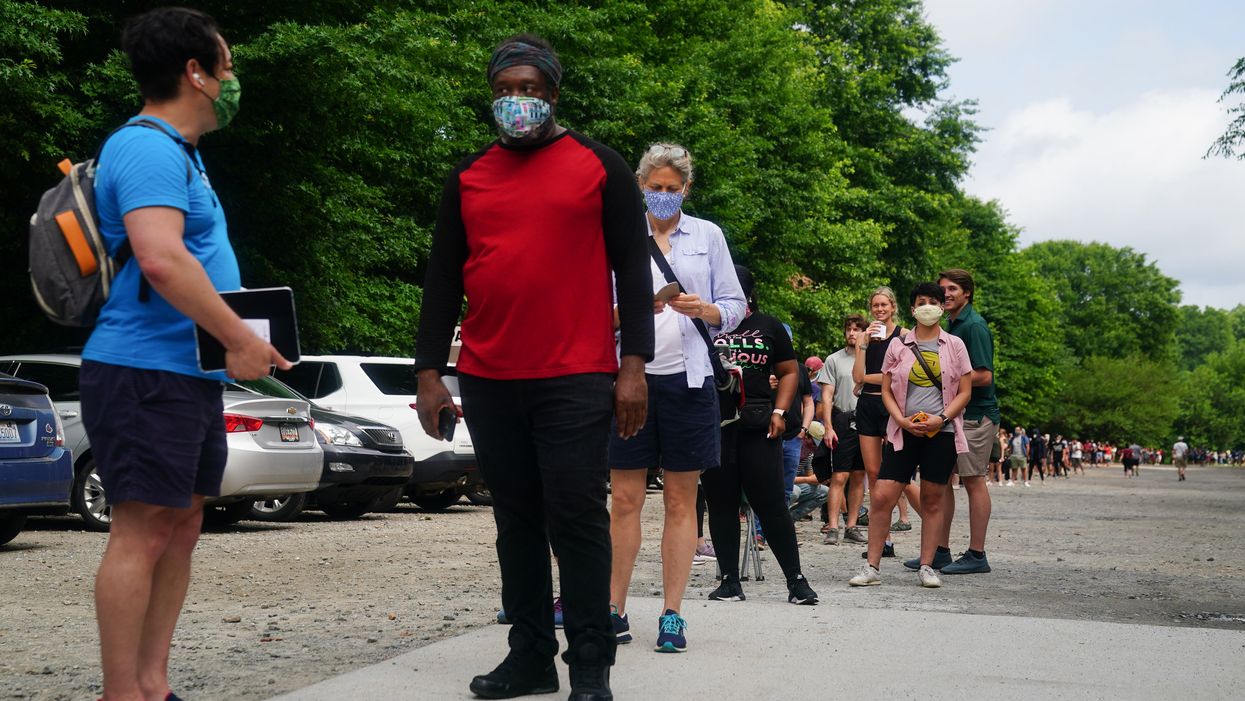Thompson, a Republican, has served in the Georgia Senate since 2013.
During the first seven months of the year, overshadowed by the coronavirus pandemic, I have seen a common trend across the country: government mandates limiting Americans' choices in every corner of our lives.
Justified or not, the lockdowns drastically limited where we could shop, where we could eat, where we could worship and the jobs we could be paid for.
Today, all 50 states are in various stages of reopening, and I am proud to represent voters in Georgia, where we were one of the first to return to some semblance of normalcy. Yet despite this early loosening of restrictions, our state is under a new threat that would limit another of our precious freedoms: how we cast our ballots in the presidential election in November.
Multiple lawsuits are exerting enormous pressure on judges and elected officials to vastly expand mail-in voting in Georgia while closing polling places — ostensibly to encourage as many mailed ballots as possible.
The premise is fundamentally flawed. Make no mistake: Our electoral institutions here in Georgia are already set up to operate in a pandemic like this one. These efforts would fundamentally transform them, eliminating the safeguards we need to protect the legitimacy of our election.
Georgia has a no-excuse absentee system in place, whereby any voter who chooses can request that a ballot be mailed to them through a request form. That form asks voters for their full name, address, birth date, an ID number and a signature. That information is verified against the voter's registration on file before the ballot is sent. The ballot itself has a return envelope with a line for a signature. The signature is compared against the one on the application, again checking for a match before counting the ballot.
In Georgia's electoral system, voting absentee is one choice for all voters. If voting in person is preferred, that is also our choice, and we have taken enormous steps to make the elections of 2020 the safest and most hygienic in history. Just a few measures include social distancing, face masks or shields, hand sanitizer, gloves and disposable marking devices for every voter. The list goes on.
It is safer to go to the polls this year, if you choose to do so, than it is to go to the grocery store.
But the culmination of these lawsuits is not to improve the electoral system we already have, but to fundamentally alter it. As we have seen in California, Nevada, Maryland and New Jersey, the goal is to send every name on the registration rolls a blank ballot — and then to allow third parties, even campaign staff, to collect them.
A lawsuit filed by the New Georgia Project, together with former Hillary Clinton attorney Marc Elias, specifically advocates for party operatives to be lawfully allowed to go door-to-door to collect completed ballots or "help" voters fill them out, a recipe for influencing voters' choices.
Polling place closures simply require more voters to participate in this system.
For evidence, consider the primary season. So many polling places were closed during the June 9 primary that each one would need to accommodate approximately 10,000 voters. The problems were especially obvious in minority communities, since Hispanic voters are three times less likely to vote absentee — and Black voters half as likely — as white voters. Georgia voters waited in line at polling places for up to five hours.
Mayors and other local officials bargained that voters would choose to vote absentee, and they made the corresponding decision to close polling places rather than develop innovative solutions to keep them staffed and open. These decision-makers did not take into account the Postal Service delays, the deluge of request forms at the Board of Elections, or the valued tradition of voting in-person on Election Day. We will never know how many voters were simply disenfranchised two months ago — either because they never received the ballot they requested or they felt compelled to drop off a very long line and walk away.
In other words, our primary proved it: Moving to primarily mail voting disenfranchises voters.
With so many safety protocols at polling places, and so many conspicuous issues with blank ballots reaching real voters, it's no wonder voters trust the traditional system of in-person voting more than the trial-and-error system of voting through the mail. Our priority must be creating a system that allows as many people as possible to vote safely and securely. For Georgia, that means keeping our established system of no-excuse absentee voting and in-person voting in place.



















